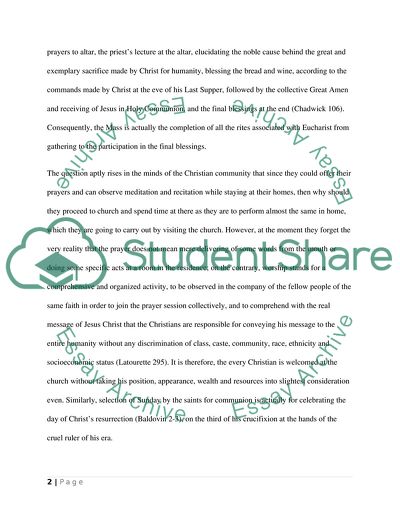Cite this document
(A History of Christianity Literature review Example | Topics and Well Written Essays - 1750 words - 1, n.d.)
A History of Christianity Literature review Example | Topics and Well Written Essays - 1750 words - 1. https://studentshare.org/religion-and-theology/1782613-eucharist
A History of Christianity Literature review Example | Topics and Well Written Essays - 1750 words - 1. https://studentshare.org/religion-and-theology/1782613-eucharist
(A History of Christianity Literature Review Example | Topics and Well Written Essays - 1750 Words - 1)
A History of Christianity Literature Review Example | Topics and Well Written Essays - 1750 Words - 1. https://studentshare.org/religion-and-theology/1782613-eucharist.
A History of Christianity Literature Review Example | Topics and Well Written Essays - 1750 Words - 1. https://studentshare.org/religion-and-theology/1782613-eucharist.
“A History of Christianity Literature Review Example | Topics and Well Written Essays - 1750 Words - 1”. https://studentshare.org/religion-and-theology/1782613-eucharist.


